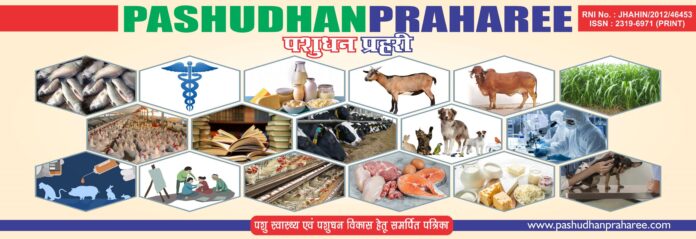Impact of COVID-19 On Dairy Farmers
𝐆𝐨𝐮𝐫𝐚𝐯 𝐊𝐮𝐦𝐚𝐫
Introduction
COVID-19 originating from China has eventually spread through the whole world and emerged into pandemic. India has already become a hotspot for the virus, next to United States. A pandemic shock can have a greater significance on economies due to lost of human lives compared to a weather shock such as drought or flood. Undoubtedly, all these shocks affects dairy farmers a lot.
- Importance of Dairy sector
- https://www.pashudhanpraharee.com/impact-of-covid-19-on-food-industries/
India has transformed from a country of acute milk shortage to the world’s leading milk producer. The phenomenal success is attributed to a government initiative known as Operation Flood(1970-1996) and it’s intense focus on dairy development activities. Over the past few decades, the dairy sector has emerged as a life-line of the rural economy in India. However, given the higher prices elasticity of milk and milk products, the demand for the milk is very sensitive to price changes. Milk is a unique “crop” that farmers harvest daily and also being consumed daily. So, supply-demand balance is not a difficult task.
COVID-19 has affected the lives and livelihoods of millions of dairy farmers in the country. More than 70 Percent of milk is being produced by small farmers and thus milk provides immediate cash for their livelihood. These small farmers are worst hit due to lower demand and consequences no or partial procurement. The major milk share is handled by the unorganised sectors comprising milkmen, milk contractors, halwai shops, city based private dairy shops, etc. While only 30 Percent is handled by organised sector dairy co-operatives and private milk plant.
- Impact on procurement of milk
On May 2020, Union Finance Minister, admitted that the demand of milk has fallen by 20-25 Percent. Amul’s Managing Director, R.S. Sodhi said, the daily sale of Amul has declined by 30 Percent. The fall have been even higher for other co-operatives, private dairies and informal suppliers. The private or small player who where buying milk from farmers have stopped doing so because they don’t know what to do with the milk in pandemic. Dairy co-operatives did not significantly increased procurement of milk during lockdown. There was little extra procurement of milk over and above the usual level of procurement. As per data, due to declined in demand, dairy co-operatives were procuring an average of 560 lakh litres and they sold only about 360 lakh litres per day. Dairies used to convert excess milk into skimmed milk powder and butter, then trade it as a commodity, or reconvert it to liquid milk in the months when milk production drops. During the lockdown, there was obviously a vast amount of excess milk and this too was converted into skimmed milk powder. At present, there are around two lakh tonnes of milk powder stock in the country.
- Impact of Lockdown on dairy farmers
Milk is a perishable product and it can not be stored without proper processing. Due to decrease in demand the prices of milk fell by Rs.10 – Rs.13 per litre. Dairy farmers had begun various protests against the low prices they were getting for milk over a few months. They dumped tonnes of milk on streets across various towns in country. In some villages, due to disruption of supply chain and no presence of milk cooler tanks, villagers had no option but to drain the milk.
In Feb 2021, Union Finance Minister, admitted that the “Milk producers faced an unprecedented livelihood crisis.” In pandemic, the closure of shops had cut down the demand for milk and milk products while severe shortage of fodder and cattle feed has pushed up the input cost. Further, private veterinary services have almost stopped due to covid-19 , which has led to the death of milch animals. Pandemic has thrown the farmers from frying pan to fire.
In pandemic, Milk is considered as an essential item and allowed to be transported over district boundaries. But producers of extraneous milk products such as sweets and institutional manufacturers of ice creams, chocolates, cheese, and so on, had to stop their production since their products were not on the list of essential items. This is one of the reason why the quantum of milk procurement dropped.
- Conclusion
The pandemic led chain of events has variously affected the domestic dairy system specifically production, marketing and consumption. Dairy industry is critical for realising the goal of doubling the farmer’s income. Therefore, given the importance of dairy sector, especially for farmers, there is a need for government at various levels to address this crisis and establish a holistic framework for the overall growth of the sector.
https://www.ncbi.nlm.nih.gov/pmc/articles/PMC7644897/



